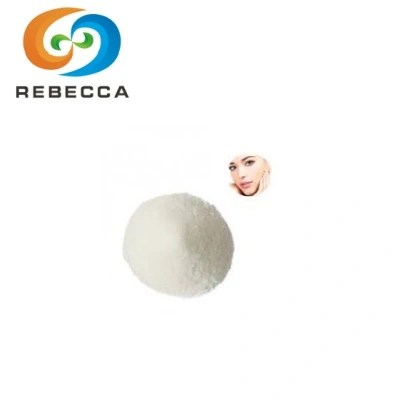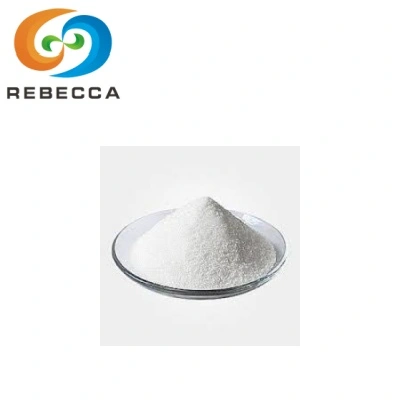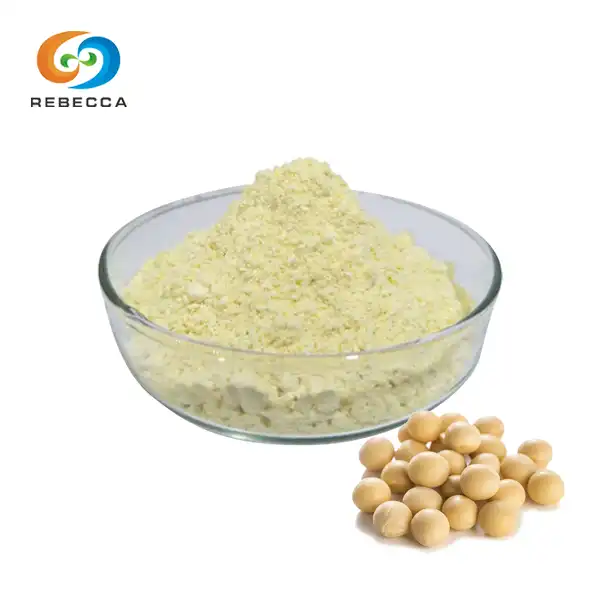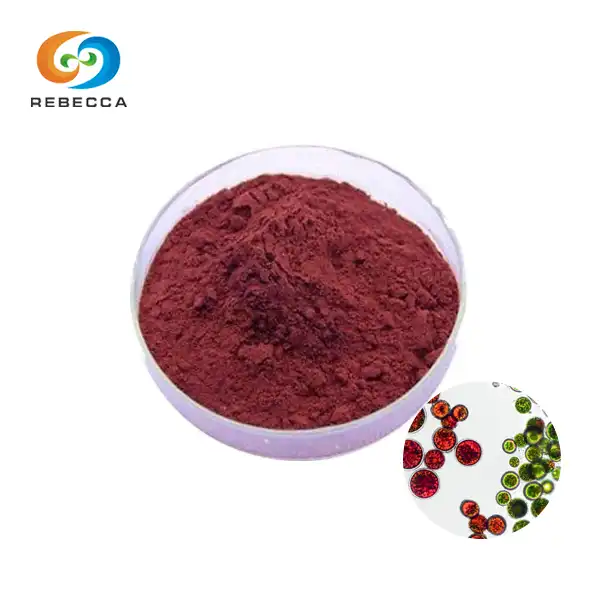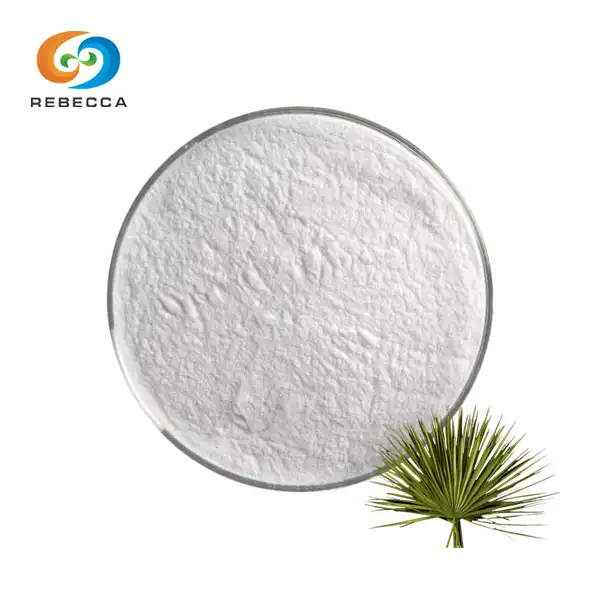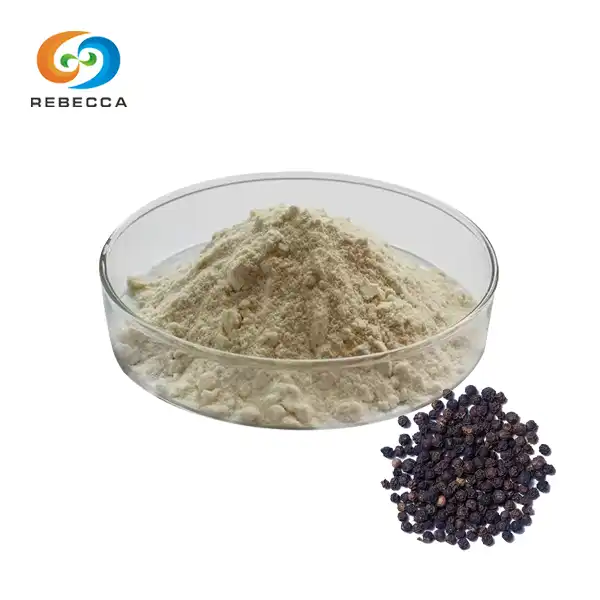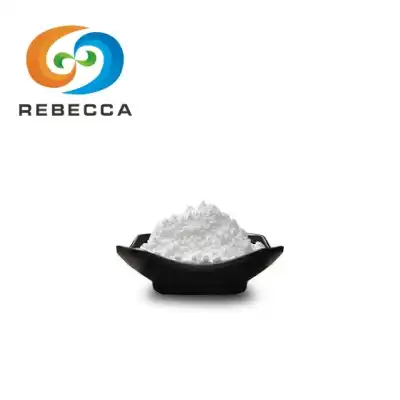What is lycopene powder used for?
Lycopene extract powder, derived from tomatoes and other red fruits, is a versatile and potent antioxidant with numerous applications across various industries. This powerful carotenoid is widely used in nutraceuticals, functional foods, and cosmetics due to its potential health benefits and vibrant red color. Lycopene powder offers a concentrated form of this valuable compound, making it easier to incorporate into supplements, foods, and skincare products. Its uses range from supporting heart health and prostate function to enhancing the nutritional profile of processed foods and providing natural UV protection in skincare formulations.
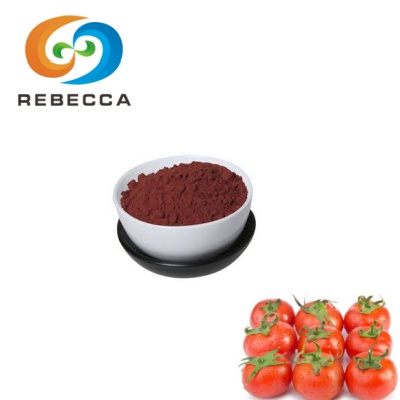
English name: tomato extract
Latin Name: Lycopersicon esculentum
CAS No.: 502-65-8
Molecular formula:C40H56
Molecular Weight: 536.88
Active ingredients: lycopene
Specification: 5%~98%
Use Part : fruit
Appearance: Dark red powder
Mesh size:80 Mesh
Test Method: HPLC
Nutraceuticals: Lycopene's Growing Market Presence
Lycopene supplements: Heart health benefits
The nutraceutical industry has witnessed a surge in lycopene-based supplements, primarily due to their potential cardiovascular benefits. Research suggests that lycopene may help reduce the risk of heart disease by lowering LDL cholesterol levels and improving blood pressure. A study published in the American Journal of Clinical Nutrition found that individuals with higher blood lycopene levels had a lower risk of cardiovascular events. Lycopene extract powder allows supplement manufacturers to create concentrated formulations that deliver a consistent dose of this beneficial compound.
Antioxidant properties of lycopene extract powder
Lycopene's potent antioxidant properties make it a valuable ingredient in nutraceutical formulations targeting oxidative stress. As a powerful scavenger of free radicals, lycopene helps protect cells from damage caused by these harmful molecules. This antioxidant activity may contribute to its potential anti-inflammatory effects, which are crucial in managing chronic diseases. Supplement brands often combine lycopene with other antioxidants like vitamin E and selenium to create synergistic formulations that offer comprehensive cellular protection.
Prostate health: Lycopene's potential role
Numerous studies have investigated lycopene's potential benefits for prostate health. While more research is needed, some evidence suggests that lycopene may help support prostate function and reduce the risk of certain prostate-related issues. A meta-analysis published in the Journal of Nutritional Science and Vitaminology found a significant inverse association between lycopene intake and prostate-related concerns. This has led to an increased interest in lycopene-based supplements targeting men's health, with many brands incorporating lycopene extract powder into their prostate support formulas.

Culinary Applications
Natural food coloring: Lycopene powder in action
The food industry has embraced lycopene extract powder as a natural alternative to synthetic food colorants. Its vibrant red hue makes it an excellent choice for enhancing the visual appeal of various food products without compromising on clean label requirements. Lycopene powder is particularly useful in applications where a tomato-like color is desired but the addition of tomato flavor would be inappropriate. Food manufacturers use it to color beverages, confectioneries, dairy products, and processed meats, meeting consumer demand for natural ingredients while maintaining product aesthetics.
Enhancing nutritional value in processed foods
Fortifying processed foods with lycopene extract powder has become a popular strategy for improving their nutritional profile. By adding this carotenoid to products like bread, cereals, and snack foods, manufacturers can boost the antioxidant content and potentially enhance the health benefits of their offerings. This approach allows food companies to create functional food products that appeal to health-conscious consumers without significantly altering taste or texture. The stability of lycopene powder during processing makes it a versatile ingredient for various food applications.
Lycopene-rich recipes for health-conscious consumers
Innovative chefs and food bloggers are incorporating lycopene extract powder into recipes to create nutritious and visually appealing dishes. From smoothie bowls to energy bars, lycopene powder adds both color and potential health benefits to a wide range of culinary creations. Its mild flavor profile allows for versatile use in both sweet and savory applications. Health-focused restaurants and meal delivery services are also exploring ways to incorporate lycopene powder into their menu offerings, catering to consumers seeking functional foods that support overall well-being.
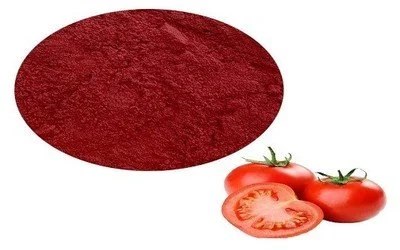
Cosmetic Industry
Anti-aging skincare: Lycopene's protective effects
The cosmetic industry has recognized lycopene's potential as an anti-aging ingredient in skincare formulations. Its antioxidant properties help protect skin cells from oxidative stress, which is a major contributor to premature aging. Lycopene extract powder is often incorporated into serums, creams, and masks designed to combat fine lines, wrinkles, and age spots. Some studies suggest that lycopene may help improve skin texture and boost collagen production, making it a valuable addition to anti-aging skincare routines.
Sun protection: Lycopene as a natural UV shield
While not a substitute for traditional sunscreens, lycopene has shown promise in enhancing the skin's natural defense against UV damage. Research indicates that lycopene may help reduce skin redness and inflammation caused by sun exposure. Cosmetic formulators are incorporating lycopene extract powder into day creams and after-sun products to provide an additional layer of protection against environmental stressors. This natural approach to sun care aligns with the growing consumer preference for plant-based skincare solutions.
Hair care products: Lycopene for vibrant, healthy locks
The benefits of lycopene extend to hair care as well. Its antioxidant properties may help protect hair follicles from oxidative stress, potentially supporting hair growth and health. Some hair care brands are including lycopene extract powder in shampoos, conditioners, and hair masks to promote scalp health and add shine to hair. While more research is needed to fully understand lycopene's effects on hair, its inclusion in hair care formulations reflects the industry's interest in exploring natural ingredients with potential protective properties.
Lycopene extract powder has emerged as a versatile ingredient with applications spanning nutraceuticals, culinary creations, and cosmetics. Its antioxidant properties, potential health benefits, and natural coloring abilities make it a valuable asset for product developers across multiple industries. As research continues to uncover new potential uses for lycopene, we can expect to see even more innovative applications of this carotenoid in the future. The growing consumer demand for natural, functional ingredients positions lycopene extract powder as a key player in the development of health-focused products.

Lycopene Extract Powder Manufacturer
Shaanxi Rebeccia is a leading lycopene extract powder supplier in China, offering high-quality products for various applications. Our production base is equipped with internationally leading extraction, separation, and purification equipment, and operates in strict compliance with GMP and ISO standards. From raw material procurement to finished product delivery, every step undergoes rigorous quality control to ensure the safety and efficacy of our products. Our lycopene extract specifications include: CAS No.: 502-65-8, Molecular formula: C40H56, Molecular Weight: 536.88, Active ingredients: lycopene, Specification: 5%~98%, Use Part: fruit, Appearance: Dark red powder, Mesh size: 80 Mesh, Test Method: HPLC. For inquiries about our botanical extracts, contact us at information@sxrebecca.com.
References
- Mozos, I., et al. (2018). Lycopene and Vascular Health. Frontiers in Pharmacology, 9, 521.
- Rao, A. V., & Rao, L. G. (2007). Carotenoids and human health. Pharmacological Research, 55(3), 207-216.
- Gann, P. H., et al. (1999). Lower prostate cancer risk in men with elevated plasma lycopene levels: results of a prospective analysis. Cancer Research, 59(6), 1225-1230.
- Stahl, W., & Sies, H. (2012). β-Carotene and other carotenoids in protection from sunlight. The American Journal of Clinical Nutrition, 96(5), 1179S-1184S.
- Jhawar, N., et al. (2018). Lycopene in oral health. Indian Journal of Dental Research, 29(3), 359-363.
